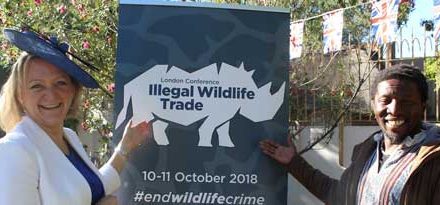
New centre to complement and strengthen climate projects
Research in climate, forestry, agriculture, land use and biodiversity will be promoted through a collaborative effort among five countries in southern Africa, with Germany as the guiding partner.
The Southern African Science Service Centre for Climate Change and Adaptive Land Management (SASSCAL) launched in April this year will strengthen existing research and capacity building infrastructures and research initiatives in the region.
The centre is a joint initiative of Angola, Botswana, Namibia, South Africa, Zambia and Germany, and is seen as a regional response to the challenges of global change. The establishment of the centre is in line with international climate change conventions, declarations and existing research. The initiative has grown out of previous science initiatives in southern Africa and is actively supported by a broad range of stakeholders.
The current processes of global change, which include demographic change, climate change and the globalisation of economic systems, are an enormous challenge for societies worldwide, hence SASSCAL will address current challenges in adaptation to climate change and natural resource management.
A series of round-table meetings, national stakeholder meetings and technical workshops were held across the five southern African countries to obtain input from a range of stakeholders into the design of the initiative. Five areas for research and training were identified during the workshops, namely climate, water, forestry, agriculture, land-use and biodiversity.
One major component of the centre is capacity development which will help guide policy makers and involve students at masters’ level who will work closely with established scientists. A master plan will be set up to establish different components of courses offered at all universities of the hosting countries. This will help ensure that qualifications are tailor made for individuals.
The initiative also aims to empower local stakeholders to develop and implement their own knowledge-based solutions, including advice for policy makers.
The German Federal Ministry of Education and Research (BMBF) agreed to provide financial and technical support for SASSCAL over the first four years, after which the hosting countries take ownership of the centre and become responsible for the implementation of the projects.
Being one of the driest countries, Namibia was chosen to host the first Secretariat, starting this month. A document of intent is in place which fully indorses the initiative. Cabinet has approved for the Secretariat to be hosted in Namibia.













































